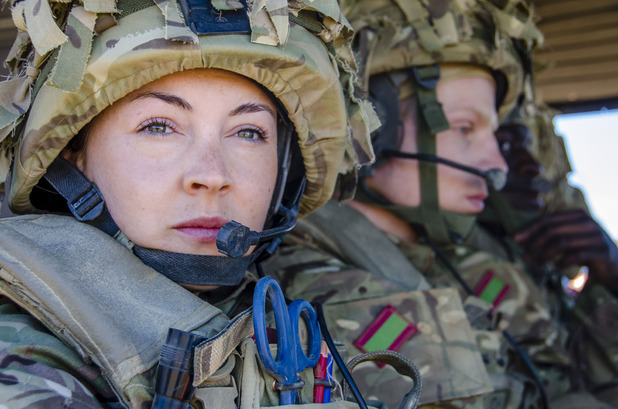In the past few weeks, BBC1 has been showing a new drama, Our Girl, which tells the story of a young army medic working in war-torn Afghanistan.
It’s hard to understand or identify what those in the forces experience day to day, even with talented actors and impressive sets.
Throughout the programme, medic Molly Dawes and her colleagues face the transition between army and civilian life, and discuss their futures beyond the forces. With so many cuts in the Army, the question of what to do after military service is on many minds, and an increasing number of former forces personnel are turning to the oil and gas industry for work.
Chris Knox served as a naval medic for 10 years. He began his military career as a rifleman and had tours of duty across Iraq.
“We could have 120 guys in a company and only two medics. They are worth their weight in gold,” he said.
“The technology that has come out of the wars in the Gulf is incredible. From a medic’s perspective the battlefield solutions have come on tenfold. Dressings have been developed using oyster shells, which we used in the field to stop bleeds quicker.
“I believe these technologies could be deployed offshore and at not too great a cost. If they made a difference during a crisis they would be worth every penny. I’ve been very impressed with health and safety work offshore.
“Health and safety staff have high workloads. People wear full personal protective equipment (PPE) and anti-squash gloves, plus glasses. I’ve previously had a chap that got something in his eye. If it hadn’t been for PPE he could have lost his eyesight.
“PPE has come on leaps and bounds in 10 to 15 years. I’ve seen videos of riggers working in shirts and jeans with no gloves. I’ve worked in Kenya and I know across Africa and parts of Asia there have been incidents that could have been avoided.”
In 2012, Chris left the forces, and through Aberdeen-based recruitment consultancy RedWave, transferred to the harsh conditions of the North Sea.
He said: “There are certain synergies. The routine of being away from home and the shift lifestyle, the understanding of risk, and the chance to go anywhere in the world, are obvious similarities. But offshore specialist work should not be underestimated. These professionals are experts in their roles. There is nothing like it.”
As director of RedWave, Jacqueline van den Akker has seen a number of people like Chris make the transition from the forces into oil and gas.
She said: “It isn’t for everyone, but we aim to make the transition as straightforward as possible. We look at the base skills individuals already have, such as experience and qualifications in mechanical engineering, electrical engineering or catering and fill in knowledge gaps they may have for oil and gas.
“In the case of Chris, he has extensive experience as a medic and has made a successful transition offshore. He has gained the confidence of rig managers through hours offshore. Getting that first rotation is hard, but Chris has obviously impressed. It does not stop here though. I know Chris wants to continue improving by completing his HSE training so he can progress much further.”
